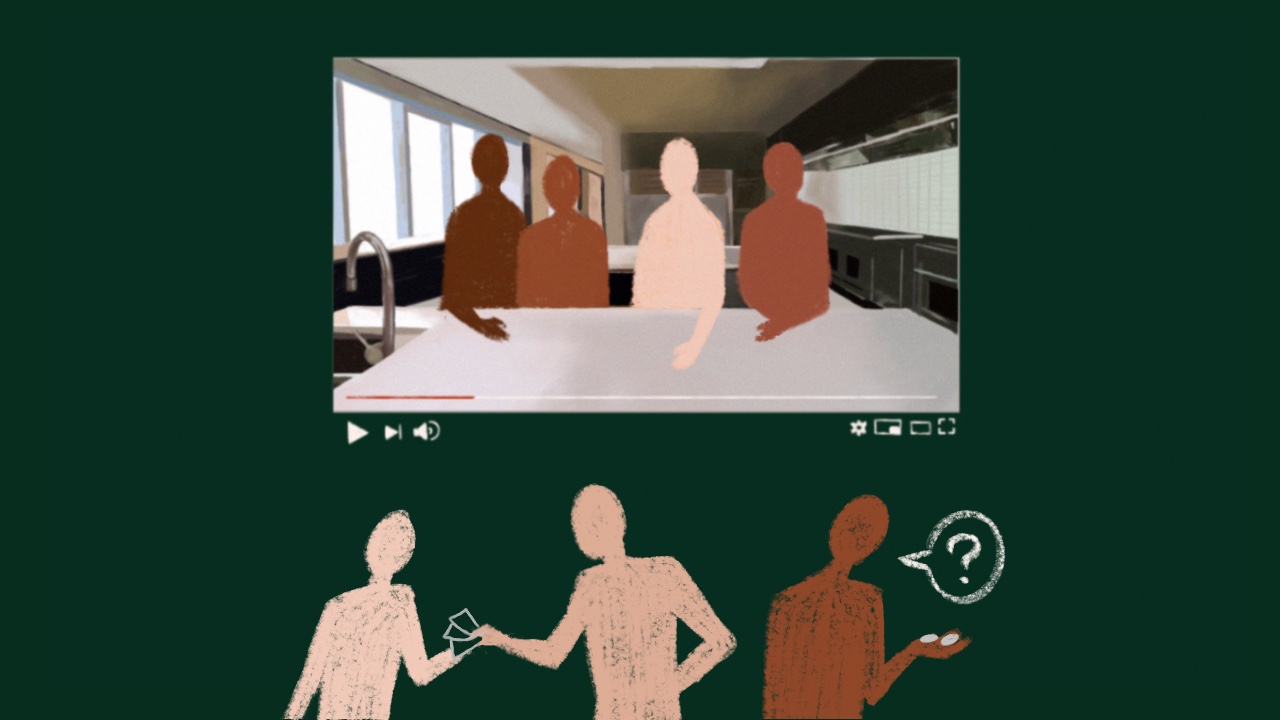With over six million followers on YouTube, Bon Appétit (BA) is now facing backlash after editor in chief Adam Rapoport faced allegations of discrimination and mistreatments of BIPOC (black, indigenous, people of color) staff. But, this only reveals a long track record of false inclusivity and outright racism.
Over the weekend, food writer lllyana Maisonet revealed her conversation with Rapoport after her recent tweets on the rejection of her Puerto Rican rice fritters pitch. Under the argument of seeking more “accessible” content, Rapoport’s responses to Maisonet—particularly on how the Puerto Rican food writer’s work can find a “way in” to BA—were condemned by both the staff and public as tone-deaf, discriminatory, and disrespectful. This after BA posted a black square with the caption “Food has always been political” on Instagram (as well as on Rapoport’s personal account), supposedly highlighting solidarity with BIPOC-owned restaurants and food businesses.
One of Alex Lau’s tweets reads: “When I asked, “Why have we shot food all around the world, but haven’t touched the entire continent of Africa?”, their response: “Oh, you know, the recipes get tricky and readers probably wouldn’t want to make the food.”
Similarly, journalist Tammie Teclemariam exposed Rapoport’s take on diversity after reviving a 2013 Halloween Instagram post by Rapoport’s wife Simone Shubuck showing the EIC sporting a do-rag, a large silver chain necklace, and brownface—a Puerto Rican stereotype. The caption also included the words “papi” and “boricua.” Aside from eliciting comments such as “That was so dead on, I was afraid of you two last night!” which instantly caused an uproar after screenshots of the now-deleted post circulated on Twitter, the photo also triggered discussions on white appropriation of cuisines and whose right it is to tell those stories.
I do not know why Adam Rapoport simply doesn’t write about Puerto Rican food for @bonappetit himself!!! https://t.co/rW0k5tjMoS pic.twitter.com/odZnFLz2gd
— TAMMIE TECLEMARIAM (@tammieetc) June 8, 2020
BA staff responded by publicly calling out Rapoport and demanding his resignation. The outrage of the magazine staff and contributors isn’t only rooted in the current issue but also in a long history of the EIC’s stance on diversity and race. Among those who denounced Rapoport is Sohla El-Waylly, a BA assistant editor who in her Instagram Stories demanded not only resignation but “to see BIPOC given fair titles, fair salaries, and compensation for video appearances,” saying that only white editors are paid for video appearances.
El-Waylly explains that she, with over 15 years of professional experience, was only making $50,000 as an assistant editor compared to white editors with significantly less experience on top of the reality that her video appearances are meant for performative diversity. According to The New York Times, just under half of the company was making $100,000 or more annually.
Contributor Hawa Hassan also expressed disinterest in working with BA again through her Instagram stories, stating she was only paid $400 per video and how she had to pitch herself to get into BA’s Test Kitchen.
Other staff members and contributors have joined in the protest against BA’s culture of discrimination. These include food writer Julia Tushen, editorial assistant Jesse Sparks, research director Joseph Hernandez, and BA associate editor Christina Chaey. Hernandez and contributor Priya Krishna personally felt that the issue became the erasure of all work they and their BIPOC colleagues spent celebrating the different voices in food. Contributor Hawa Hassan also expressed disinterest in working with BA again through her Instagram Stories, stating she was only paid $400 per video and how she had to pitch herself to get into BA’s Test Kitchen.
In case you’ve missed it: Not only is Sohla one of the only front facing Bon Appetit editors to denounce EIC Adam Rapoport doing brown face, apparently only white BA editors are paid for their video appearances. Here’s her Instagram story just now pic.twitter.com/h0uPMlJYHN
— Sarah Manavis (@sarahmanavis) June 8, 2020
Hawa did NOT come to play… "while I'm here – remove me from this punk ass photo" 👏🏼 pic.twitter.com/b8G4DL0gWU
— Pod Appétit: Gourmet Takes (@pod_appetit) June 8, 2020
Photographer Alex Lau meanwhile launched a Twitter thread that details the reasons why he left BA—mainly due to white leadership that refuses to forward the changes he and his BIPOC workers have been pushing for. Lau explained that his work was a constant routine of featuring the same kind of white chefs while the different communities who deserve the spotlight are rarely given the chance to be exposed.
Despite year after year of setting diversity goals and fellowship programs for BIPOC, as described by Lau, Bon Appétit remains the same institution where only the white flourish—this time without any of the concealment it has managed to put up for years.
One of Lau’s now-deleted tweets reads: “When I asked, “Why have we shot food all around the world, but haven’t touched the entire continent of Africa?”, their response: “Oh, you know, the recipes get tricky and readers probably wouldn’t want to make the food.” Writer Jia Tolentino pulled out her story from the magazine in response while BA senior food editors Molly Baz, Andy Baraghani, and Claire Saffitz along with food editor at large Carla Lalli Music refused to appear and contribute in any videos until BIPOC colleagues are treated fairly.
Despite year after year of setting diversity goals and fellowship programs for BIPOC, as described by Lau, Bon Appétit remains the same institution where only the white flourish—this time without any of the concealment it has managed to put up for years. Following the outrage of the public and staff of Bon Appétit itself, Rapoport immediately left his post, leaving a public apology on Instagram. Condé Nast’s head of programming, lifestyle, and style Matt Duckor announced on Twitter that he will personally urge that all individuals who appear on camera be compensated accordingly.





